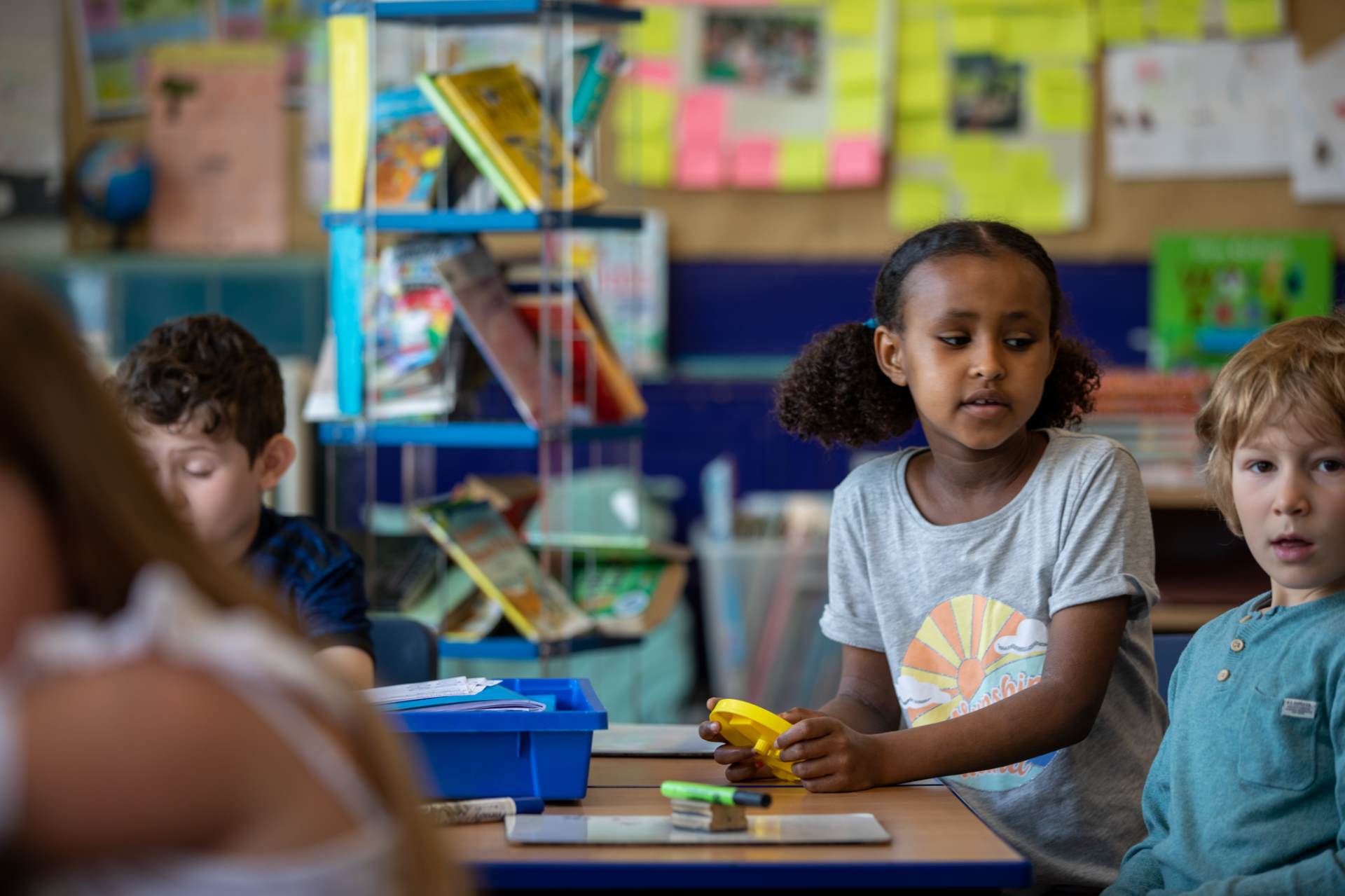Maths
A mastery approach
Intent
At Hanover, we know that maths is about much more than numbers. Children’s chances of success are maximised if they develop a deep and lasting understanding of both mathematical concepts and procedures .
In maths we use a Teaching for Mastery approach which rejects the idea that many children ‘just can’t do maths’. Mastery methods include teaching in small steps, using representations (objects and images) to illustrate concepts, and developing mathematical fluency thinking. All children are encouraged by the belief that by working hard at maths they can succeed.
Have a look at the programme of study for each year group here.
Implementation
Children are taught through whole-class interactive teaching, where the focus is on everyone working together on the same lesson content at the same time. This helps children to master concepts before moving to the next part of the curriculum sequence, maximising the opportunities for all to make good progress. From Y1, we follow the White Rose curriculum.
 Daily mathematics lessons are taught in each class along with an additional 15 minute oral maths session. Lesson design identifies the new mathematics that is to be taught, the key points, the difficult points and a carefully sequenced journey through the learning, using small manageable steps. In a typical lesson the teacher leads back and forth interaction with the children, including questioning, short tasks, explanation, demonstration, and discussion. Children then participate in intelligent practice that both reinforces their procedural fluency and develops their conceptual understanding.
Daily mathematics lessons are taught in each class along with an additional 15 minute oral maths session. Lesson design identifies the new mathematics that is to be taught, the key points, the difficult points and a carefully sequenced journey through the learning, using small manageable steps. In a typical lesson the teacher leads back and forth interaction with the children, including questioning, short tasks, explanation, demonstration, and discussion. Children then participate in intelligent practice that both reinforces their procedural fluency and develops their conceptual understanding.
We use high quality concrete and pictorial representations to help children explore and demonstrate mathematical ideas enriching their learning experience and deepening their understanding. This concrete–pictorial-abstract approach helps them to cement their knowledge and truly understand what they’ve learnt.
Quality talk, using correct mathematical terminology and full sentences, is also strongly emphasised in the daily maths lessons. This helps develop the children’s reasoning and problem solving skills
All children, including those who have SEND, EAL or are disadvantaged, are supported to fully access the maths curriculum. This support includes visual representations, stem sentences and vocabulary as well as planned small steps to structure learning.
Impact
Children at Hanover enjoy maths and feel that they can succeed in lessons. They understand that everyone can achieve in maths and that through effort they can make progress. They learn to make connections between different aspects of the maths curriculum and use this knowledge to deepen their understanding.They can use maths in context, and know how maths is relevant to everyday life.
Children have a range of strategies that they can use to solve mathematical problems in different contexts. They can talk about mathematical concepts clearly using correct subject specific vocabulary. They can clearly and confidently articulate their understanding and strategies when reasoning and problem solving.
Home Learning
Children in Years 1-6 use Mathletics to practise previously-learnt maths knowledge and skills. This is set weekly. All children from Y2 up have a log-in to Times Tables Rockstars, and pupils who have improved their speed and accuracy, or have earned the most points, plus the class with the highest participation rate, is celebrated every week in our Friday assembly.
We run regular parent workshops and ‘open classroom’ events to support families to understand how maths is taught at Hanover, and how to best help your children at home with their maths learning.
You can download our calculation policies below. These tell you how we approach the teaching of addition, subtraction, multiplication and division, and may be helpful to families when supporting their children at home.
Maths in the EYFS
In EYFS, our aim is for all children to develop firm mathematical foundations in a way that is engaging and age-appropriate.
In Nursery, we begin to develop the foundational number knowledge that the children will need. Central to our approach is the teaching of the Five Counting Principles:
- The One-To-One Principle: count each item in a group only once
- The Stable Order Principle: the names of numbers should be said in the correct order and this order does not change
- The Cardinal Principle: the final number said when counting tells you how many objects are in that group
- The Abstraction Principle: we count everything in the same way, no matter what it is
- The Order Irrelevance Principle: the order in which objects are counted is not important
Our children learn to subitise (quickly estimate visually the number of items in a group of up to five), recite numbers to 10, name and write numerals, compose amounts and link numerals to amounts up to 5, experiment with mark-making for mathematical purposes and use age-appropriate mathematical vocabulary in context (for example ‘more than’, ‘fewer than’).
Children also learn about:
- making comparisons between objects relating to size, length, weight and capacity
- patterns around them, for example, stripes on clothes, designs on wallpaper
- time in the context of their daily routines
- positional language, for example, next to, above)
In Reception, we use the NCETM Mastering Number programme to teach maths. Mastering Number sessions take place four times weekly for 10 to 15 minutes. The fifth day of maths in Reception is dedicated to the teaching of other key mathematical concepts, including shape, measurement, time, money, position and direction.
We recognise that young children also develop their mathematical understanding through their experiences. Children "do maths" in the sand pit, in the water tray, playing games in the garden, during baking and in their construction (to list just a few examples). In their play, children identify their own mathematical problems and explore different strategies to solve them. The adults’ primary role is to help develop children’s understanding by supporting children’s exploration (for example by providing resources), by questioning, ‘wondering’ and clarifying and expanding children’s ideas, and by suggesting further challenges to extend learning.

